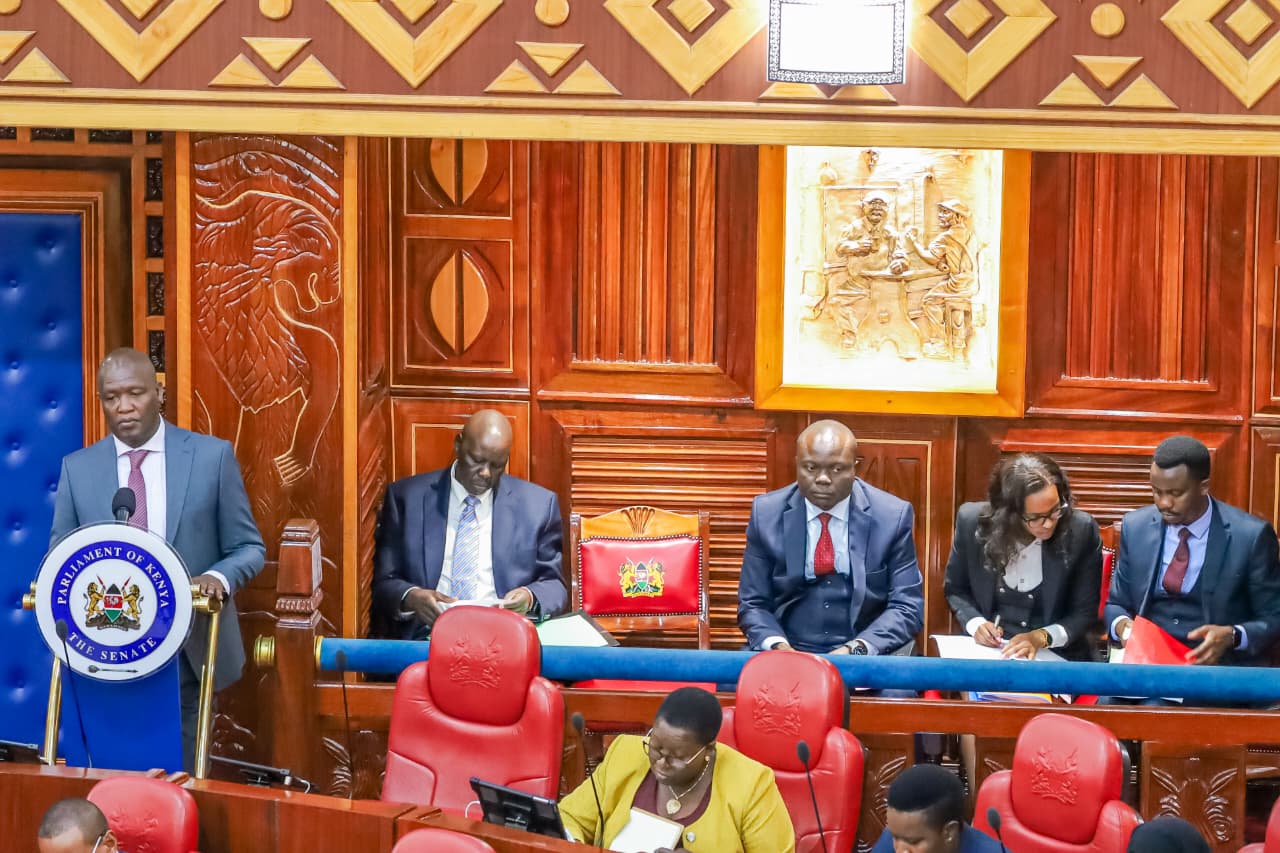
Mutai contests ‘flawed’ impeachment in Senate trial, says jurisdiction unattained » Capital News
NAIROBI, Kenya, Aug 27 — Kericho Governor Eric Mutai’s defence team on Wednesday mounted a strong challenge to his impeachment, arguing before the Senate that the County Assembly vote was unconstitutional, procedurally defective, and tainted by fraud.
Lead counsel Katwa Kigen told senators that the electronic voting system used during the August 15 impeachment was “flawed, unverifiable, and susceptible to manipulation,” rendering the entire process invalid.
He said the proceedings violated Standing Order 77, which requires abstentions to be recorded for members present but opting not to vote.
“Mr. Speaker, our contention is that what was presented as a vote was in fact a paper exercise, riddled with irregularities and fraud,” Kigen submitted.
The official Assembly report indicated that 33 MCAs voted to impeach Mutai, with none abstaining. But Kigen tabled affidavits from 18 MCAs swearing they did not cast a vote, insisting the system should have reflected their abstentions.
“If 18 members never voted, the maximum possible tally was 29—not 33. The report claiming otherwise is inaccurate and misleading,” he said.
The defence further alleged that several MCAs voted twice while others were impersonated. Audit logs from the Assembly’s system allegedly showed three members logging multiple votes, including the mover of the impeachment motion.
“Honourable Kiprotich, the mover of the motion, voted twice. Not only is it reflected in the audit report, but he is also captured on audio offering money in exchange for having voted on behalf of another member,” Kigen argued.
He added that login credentials, based on ID and payroll numbers, were easily accessible, enabling unauthorized persons to vote. System administrators were also logged in during the process, raising suspicions of manipulation.
‘Ghost voters’
Kigen said some MCAs later discovered votes had been cast in their names without their knowledge and had since reported the matter to the DCI.
Supporting him, co-counsel Peter Wanyama argued that the motion failed to meet the two-thirds majority required under Section 33(2) of the County Governments Act.
“Mr. Speaker, 18 MCAs are physically before this House, ready to testify that they never voted. Without their participation, the threshold for impeachment was never attained. What we are dealing with is not a lawful motion,” Wanyama said.
He further demonstrated that the electronic system could be accessed using nothing more than an MCA’s ID and payroll number—details often found in public documents.
The platform, he said, also failed to comply with the requirement that members must physically press a button to cast their vote, instead relying on web links sent to mobile phones.
The defence insisted these irregularities established a fraudulent pattern that made it impossible to rely on the vote, urging the Senate to dismiss the motion outright.
“Mr. Speaker, this House is a record court. You cannot entertain an impeachment motion that did not lawfully exist in the first place,” Wanyama concluded.